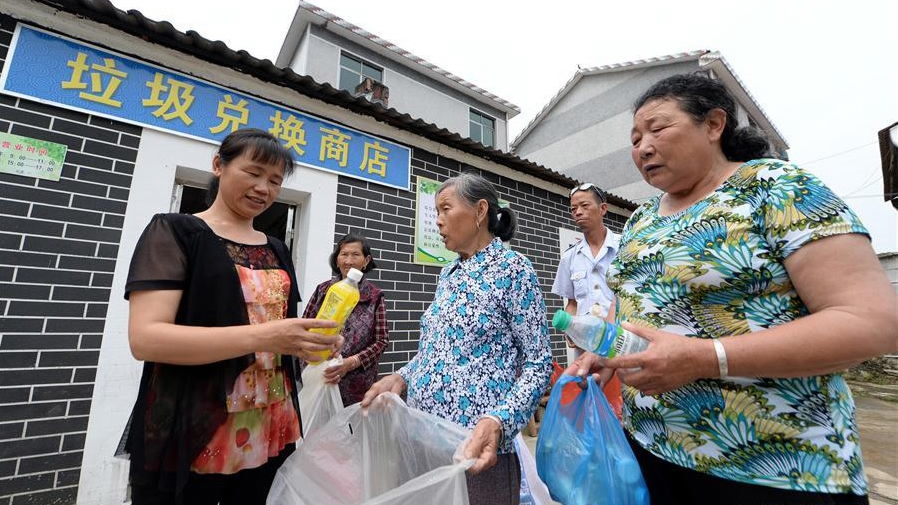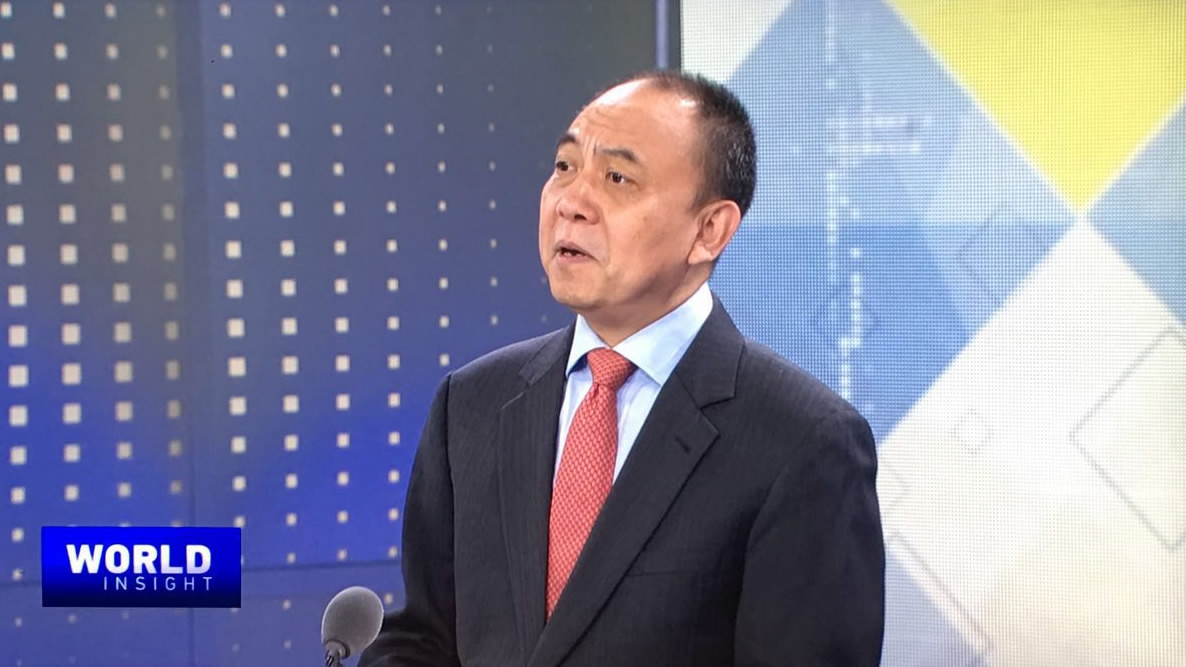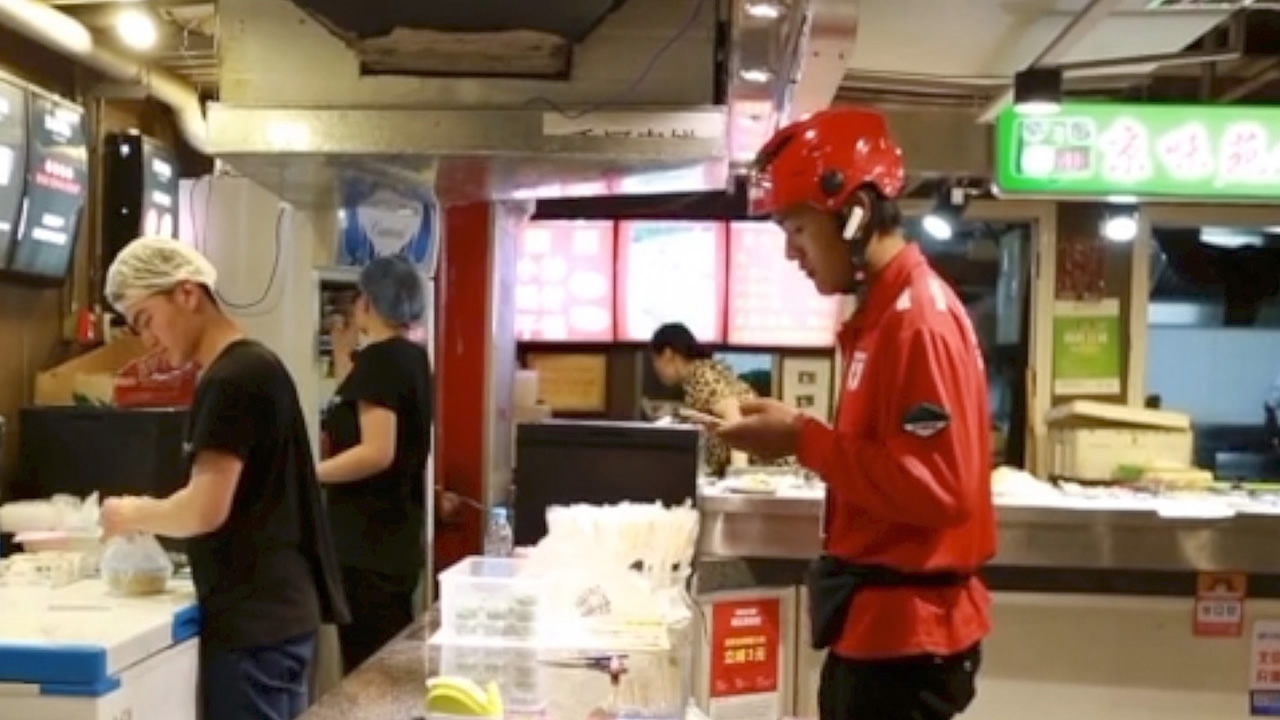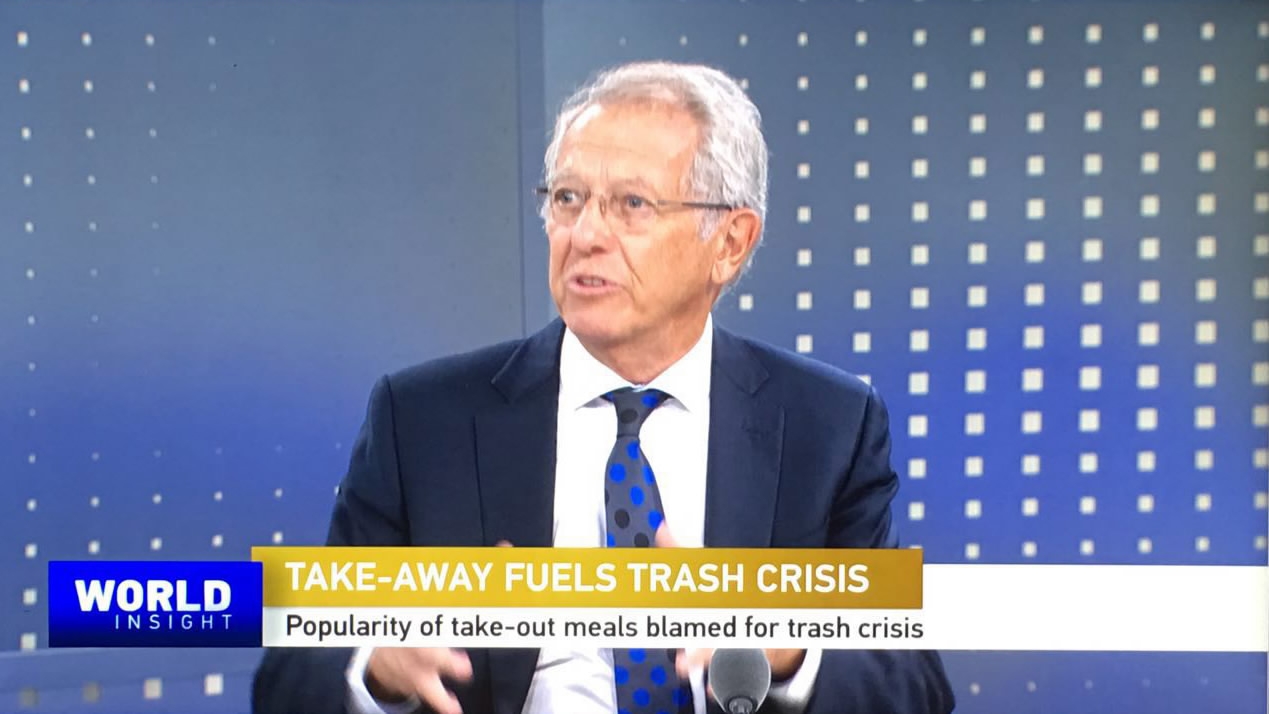
China
18:41, 21-Sep-2017
Environmentalist: Chinese takeaways making money but not paying environmental costs
CGTN

By CGTN's World Insight
“The phenomenon we are talking about is really driven by business right now. These Internet companies are taking advantage, making a whole lot money but not paying their fair share of environmental costs. The government needs to catch up,” said professor Qi Ye from the School of Public Policy and Management at Tsinghua University.
He believes online take-away firms should pay the processing costs of plastic garbage generated by their businesses.

Qi Ye from the School of Public Policy and Management at Tsinghua University. /CGTN Photo
Qi Ye from the School of Public Policy and Management at Tsinghua University. /CGTN Photo
The innovation of Online to Offline has spurred the growth of food delivery services. With the convenience and profit of this new industry, disputes over its environmental impact have taken center stage.
According to environmental statistics, over 60 million plastic boxes are consumed by consumers ordering food on take-away apps, such as meituan.com and ele.me. And plastics bags are used in such high numbers that there’d be enough to cover the surface of the vast West Lake in Hangzhou every half month.
“China is experiencing a period of super consumerism, by this I mean way beyond what is necessary for a good life, particularly for young people, displaying newly-found wealth and the ability to buy everything,” said Sir David King, a former Chief Scientific Advisor to the British Government.

His comments come after an article on Chinese social media revealed the huge amount of plastic garbage being created by food delivery services in China.
Furthermore, attempts to encourage citizens in the country to properly sort their domestic trash have been largely unsuccessful.
The results of trash sorting pilot schemes introduced in 2000 have been far from satisfactory, prompting the government to introduce new regulations which require 46 cities nationwide to carry out mandatory garbage sorting and guide residents to sort garbage on their own.
“Go back 50 years and I bet you’ll find the US was close to where China is now. It is a stage of development where people are finding, wow, we’ve got convenient food. Don’t have to cook. For 50 years I’ve cooked at home, my wife has cooked at home. Actually it doesn’t take much time. What we are actually talking about has become a global problem simply because the size of the global middle class has expanded so very rapidly this century,” he said.

Sir David King, former Chief Scientific Adviser to the British Government. /CGTN Photo
Sir David King, former Chief Scientific Adviser to the British Government. /CGTN Photo
According to the latest data, China's annual plastic trash output exceeded 300 tons, that’s in addition to plastic imports. And only 14% of plastic packaging can decompose properly.
No matter the extent to which take-away services should bear the brunt of the blame, the accumulation of garbage in China is a problem that demands prompt solutions.
World Insight With Tian Wei is a 45-minutes global affairs and debate show on CGTN. It airs weekdays at 10:15p.m. BJT(1415GMT) with rebroadcasts at 4:15a.m. BJT(20:15GMT).
0km

SITEMAP
Copyright © 2018 CGTN. Beijing ICP prepared NO.16065310-3
Copyright © 2018 CGTN. Beijing ICP prepared NO.16065310-3